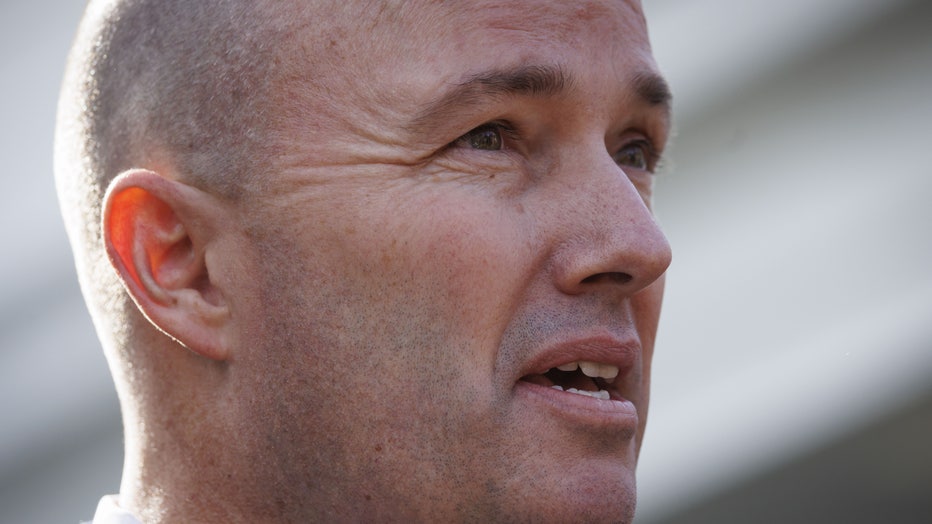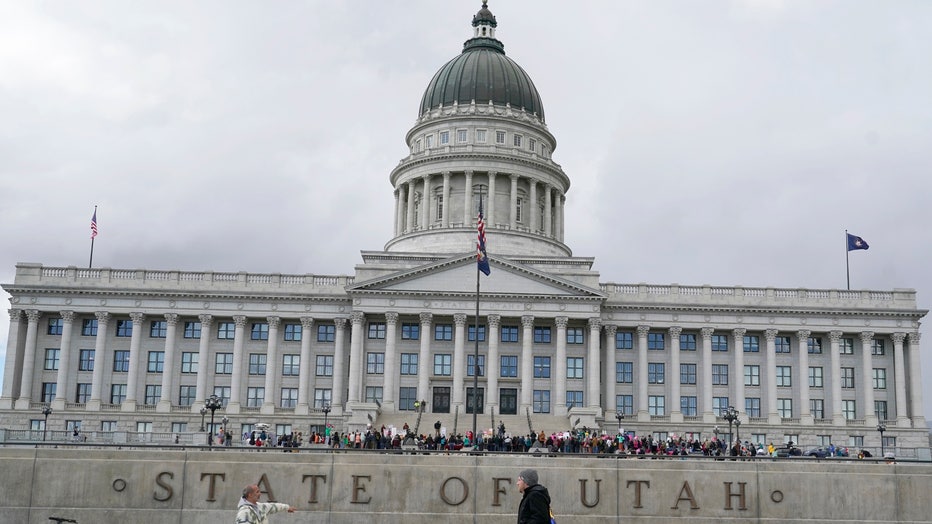Utah governor to sign bill banning abortion clinics
The Satanic Temple opens online abortion clinic for women | LiveNOW from FOX
Chalice Blythe, a minister of Satan, spoke with LiveNOW from FOX's Josh Breslow about the Satanic Tempe offering telehealth abortion services for women in New Mexico.
SALT LAKE CITY, Utah - Utah Gov. Spencer Cox said Friday that he plans to sign a measure that would effectively ban abortion clinics from operating in the state, meaning hospitals will soon be the only places where they can be provided in the state.
After passing through the state Senate on Thursday with minor amendments, it returned to the Utah House of Representatives Friday morning, where it was approved and then sent to the governor for final approval. The move comes less than a year after the U.S. Supreme Court overturned the Roe v. Wade decision, returning the power to regulate abortions to states.
Cox told reporters that he will sign the legislation, which also clarifies the definition of abortion to address legal liability concerns providers voiced about the way exceptions are worded in state law — a provision that he and Republican lawmakers called a compromise.

Spencer Cox, governor of Utah, speaks to members of the media after meeting with President Biden during the National Governors Association Winter Meeting at the White House in Washington, DC, US, on Friday, Feb. 10, 2023. Photographer: Ting Shen/Bloo
"One of the concerns with the trigger bill that medical providers had across the state was there was a lack of clarity that would have made it hard for them to perform legal abortions," Cox said.
READ MORE: Satanic Temple launches telehealth abortion care in New Mexico, hopes to expand
The measure is one of several that members of Utah’s Republican-supermajority statehouse has passed this year while abortion restrictions approved in years past are on hold because of a state court injunction. It has faced fierce opposition from business, civil liberties and abortion rights groups, including Planned Parenthood Association of Utah, which operates three of the four abortion clinics in the state.
The American Civil Liberties Union of Utah sent Cox a letter on Friday demanding he veto the legislation, with its executive director writing it interferes with people's rights and "pushes essential abortion care out of reach."
Republican lawmakers’ push to shutter abortion clinics comes as red states throughout the country work to implement restrictions after the overturning of Roe v. Wade, the U.S. Supreme Court decision that enshrined a constitutional right to abortion for nearly 50 years.

People gather at the state Capitol to rally in support of abortion rights on May 3, 2022 in Salt Lake City, Utah. (Photo by George Frey/Getty Images)
In Utah, the ruling triggered two previously passed laws — a 2019 ban on abortion after 18 weeks and a 2020 ban on abortions regardless of trimester, with several exceptions including for instances of risk to maternal health as well as rape or incest reported to the police. The state Planned Parenthood affiliate sued over the 2020 ban, and in July, a state court delayed implementing it until legal challenges could be resolved. The 18-week ban has since been de facto law.
The clinic-centered push in Utah is unique among states with trigger laws, where many abortion clinics closed after last year’s Supreme Court decision including in West Virginia and Mississippi. The measure mirrors a raft of proposals passed in red states in the decade before Roe was overturned when anti-abortion lawmakers passed measures regulating clinics, including the size of procedure rooms and distances from hospitals.
READ MORE: FDA expands availability of abortion pills
In Utah, the proposal from Rep. Karianne Lisonbee would require all abortions — via medication or surgery — be provided in hospitals by not allowing new clinics to be licensed after May 2 and not allowing any to operate once their licenses expire. It would affect the operations of the four clinics that provide abortions in Utah — three run by Planned Parenthood and the other by Wasatch Women’s Center, an independent clinic in Salt Lake City.
In Utah last year, clinics provided most abortions. Of the total 2,818 administered, 61% were with medications like mifepristone rather than via surgery. Abortion access proponents argued abortions were no different than other kinds of specialty care that have increasingly moved to clinic settings where providers are more accustomed to recurring patient concerns and confronting complications that may arise.

